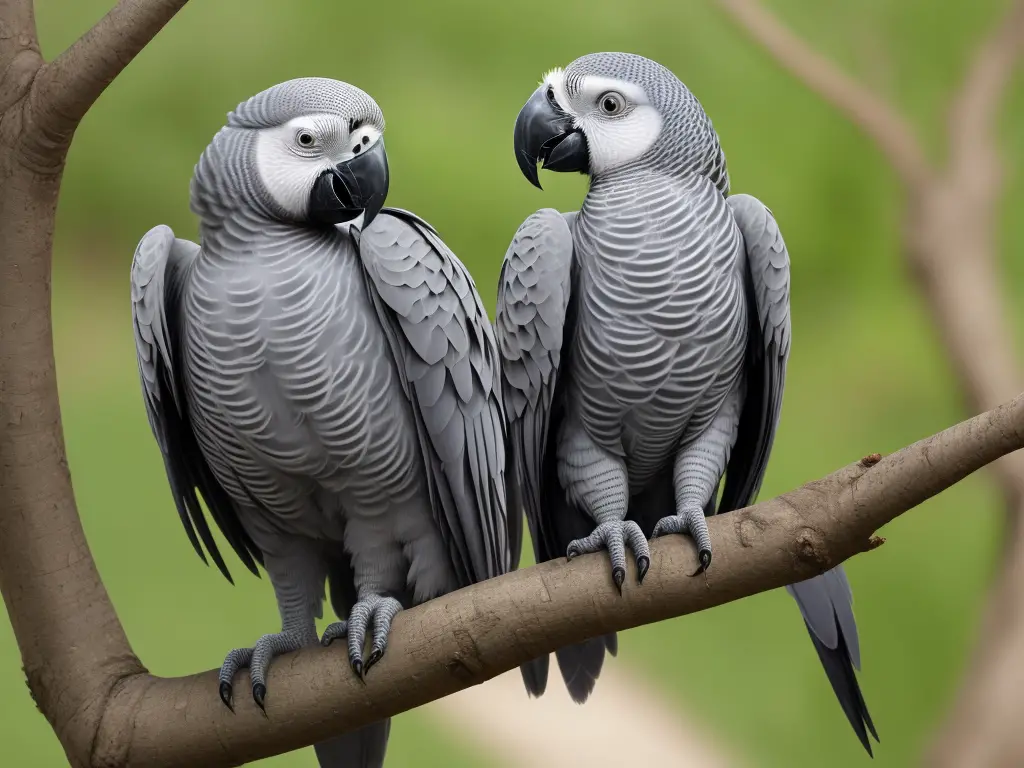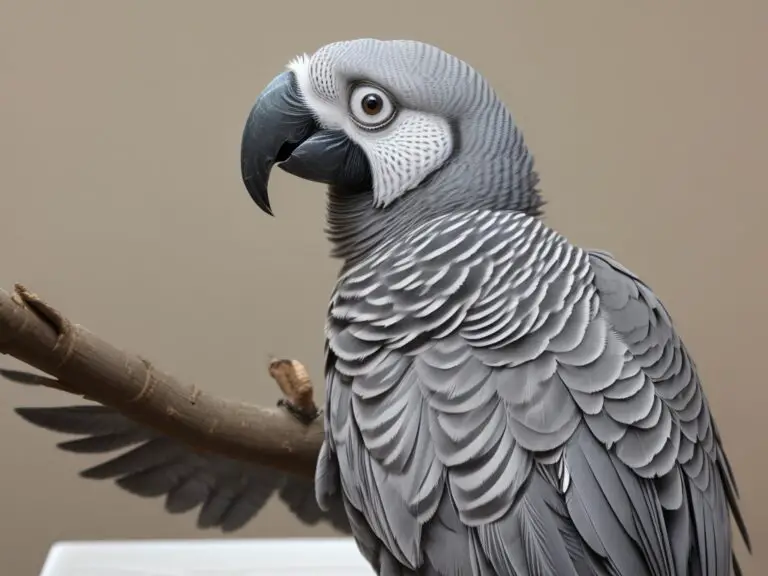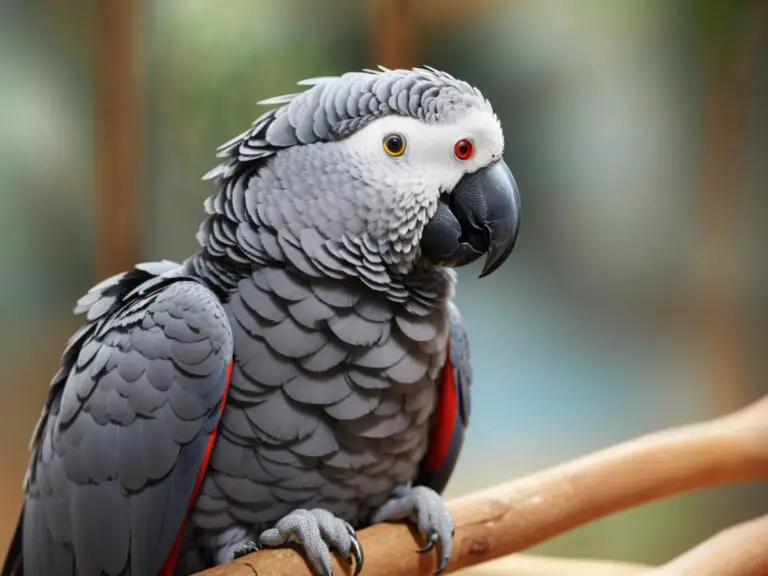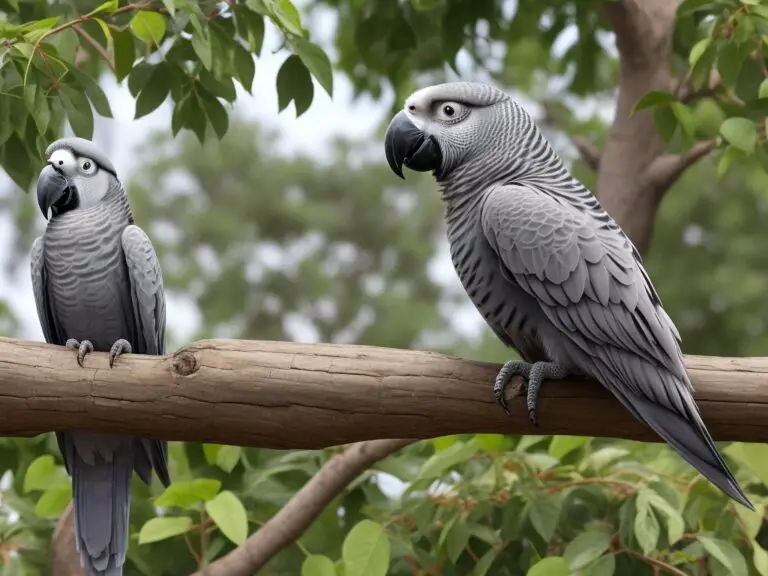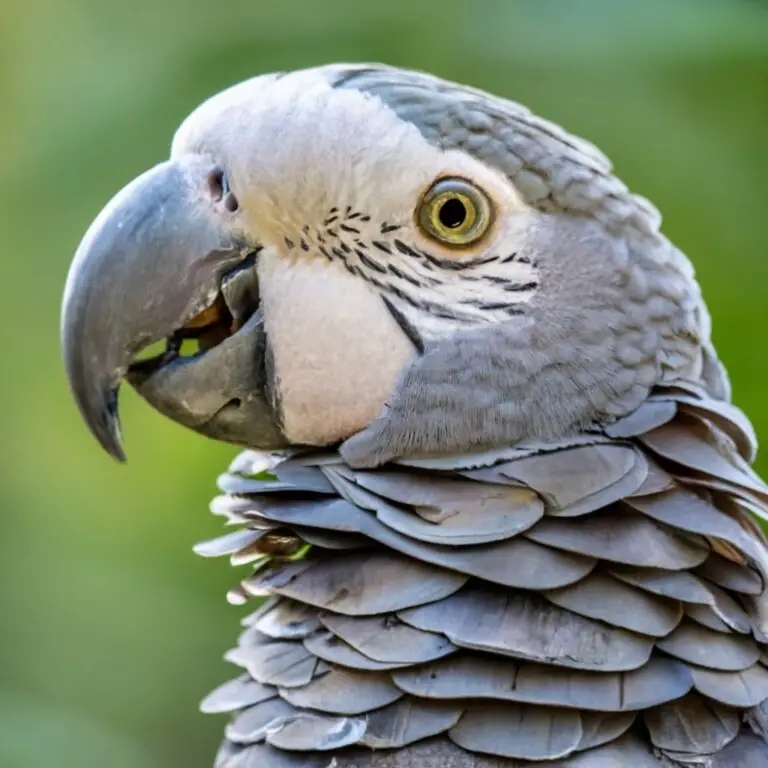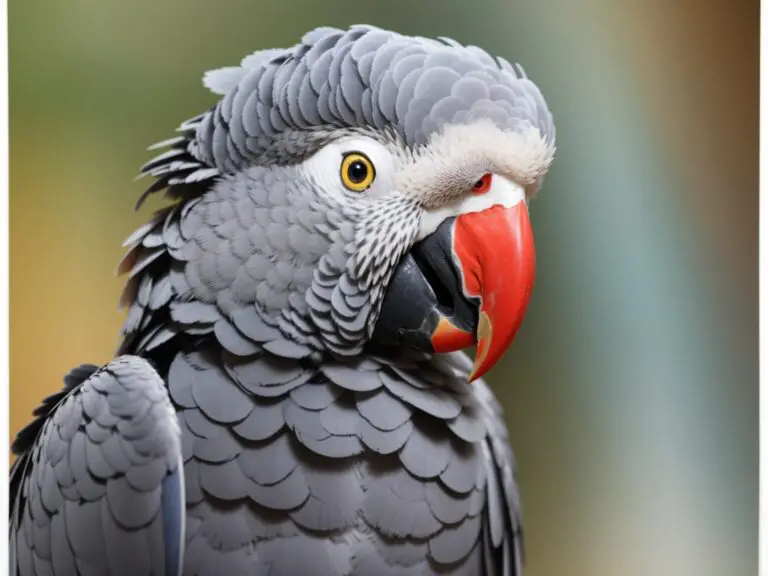How To Take Care Of a Baby African Grey Parrot?
Key Takeaways:
- Provide a balanced diet of fresh fruits, vegetables, and appropriate commercial bird pellets.
- Create a stimulating environment with plenty of toys, perches, and opportunities for social interaction.
- Establish a daily routine for feeding, exercise, and playtime to promote healthy development.
- Regularly monitor their health and seek veterinary care when needed.
Are you the proud owner of a baby African grey parrot? Taking care of these intelligent and captivating creatures requires a special understanding of their needs.
In this article, I will guide you through the essentials of baby African grey parrot care, from creating a safe environment to providing a balanced diet.
We will also explore the importance of socialization, grooming, and behavior management. Additionally, I will answer some frequently asked questions to make sure you have all the information you need to keep your feathered friend happy and healthy.
So, let’s dive into the world of baby African grey parrots and discover the secrets to their well-being.
| Task | Description |
|---|---|
| Feeding | Provide a balanced diet of fruits, vegetables, pellets, and occasional treats |
| Water | Ensure fresh water is always available in a clean container |
| Grooming | Trim nails, wings, and beak regularly; provide opportunities for bathing |
| Training | Socialize, teach basic commands, and encourage mental stimulation |
| Exercise | Allow supervised flight time outside of the cage and provide toys for physical activity |
| Socialization | Offer regular interaction with people and other birds to prevent loneliness |
| Enrichment | Provide toys, puzzles, and activities to promote mental and physical engagement |
| Healthcare | Regularly check for signs of illness and consult with an avian veterinarian as needed |
| Safe Environment | Remove hazards, ensure proper cage setup, and monitor temperature and humidity levels |
| Love and Attention | Offer affection, spend quality time, and develop a strong bond with your baby African grey parrot |
The Basics of Baby African Grey Parrot Care
Taking care of a baby African Grey parrot involves understanding their needs and creating a safe and comfortable environment for them.
Understanding the Needs of Baby African Grey Parrots
Understanding and meeting the needs of baby African Grey Parrots is essential for their health and well-being. They require a safe and comfortable environment, a balanced diet, proper hygiene and grooming, socialization and mental stimulation, and training and behavior management.
Providing these aspects will help ensure a happy and healthy life for your baby African Grey Parrot.
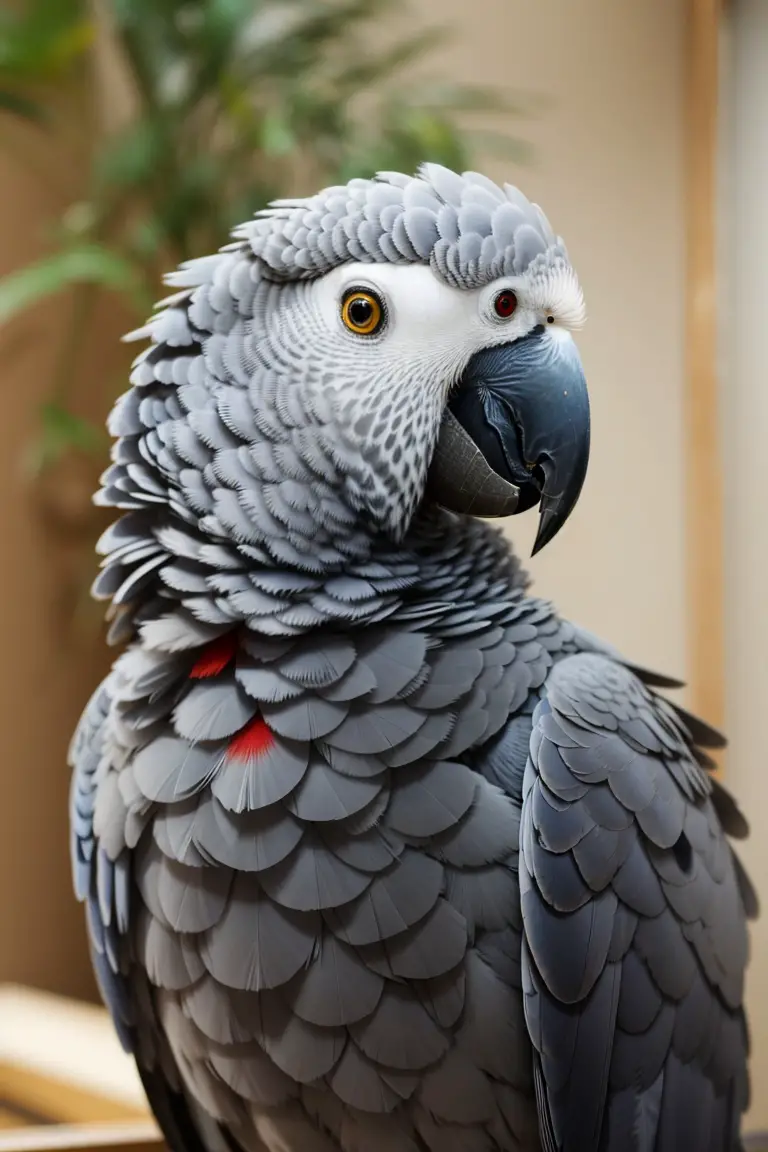
Creating a Safe and Comfortable Environment for Your Baby African Grey Parrot
To create a safe and comfortable environment for your baby African grey parrot, it’s important to focus on a few key factors.
Firstly, provide a spacious cage that allows your parrot to move around and stretch its wings.
Make sure the cage bars are securely spaced to prevent any accidents or escapes.
Next, choose a suitable location for the cage that is away from drafty areas, direct sunlight, and noisy environments.
This will help your parrot feel secure and minimize stress.
Ensure that the temperature in the room remains stable and comfortable.
Incorporate various toys and perches in the cage to keep your parrot mentally stimulated and to prevent boredom.
Provide different types of toys such as puzzle toys, chew toys, and foraging toys.
This will help your parrot stay active and engaged.
Keep the cage clean and hygienic by regularly cleaning the cage tray, perches, and toys.
It’s also important to maintain good air quality by avoiding the use of toxic substances such as aerosol sprays or strong cleaning chemicals around your parrot.
Lastly, make sure your home is parrot-proofed to prevent any accidents or injury.
Remove any toxic plants, secure electrical cords, and keep harmful substances out of reach.
Feeding Your Baby African Grey Parrot
Feeding your baby African Grey Parrot involves providing a balanced diet and introducing solid foods gradually. Establishing a feeding schedule is also important for their well-being.
Providing a Balanced Diet for Your Baby African Grey Parrot
To provide a balanced diet for your baby African Grey Parrot, you should include a mix of nutritious foods. This can include high-quality pellets, fresh fruits and vegetables, and occasional treats like nuts or seeds.
Make sure to offer a variety to ensure they get all the necessary nutrients.
Water should be available at all times.
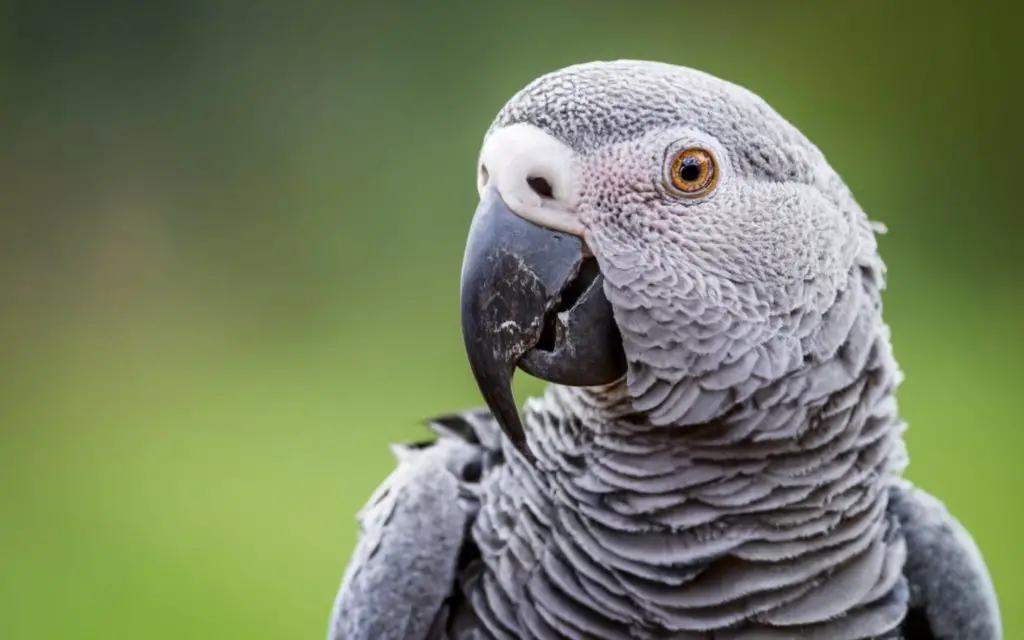
Introducing Solid Foods to Your Baby African Grey Parrot
To introduce solid foods to your baby African Grey Parrot, start by offering small, finely chopped fruits and vegetables.
Gradually increase the variety of foods, including cooked grains, legumes, and lean proteins.
Avoid foods that are toxic to birds, such as avocado, chocolate, and caffeine.
Monitor their response and adjust their diet accordingly.
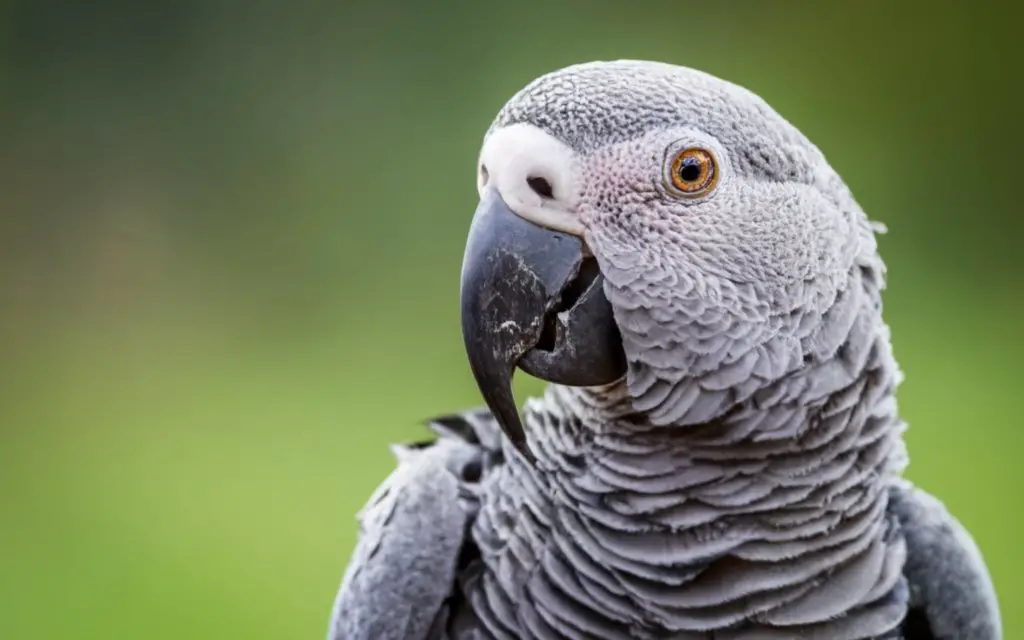
Hygiene and Grooming for Your Baby African Grey Parrot
Keep your baby African Grey parrot clean and well-groomed to ensure their overall health and happiness.
Bathing and Cleaning Your Baby African Grey Parrot
To keep your baby African grey parrot clean and healthy, bathing and cleaning are essential. You can provide them with a shallow dish of lukewarm water so they can bathe themselves.
Alternatively, you can gently mist them with a spray bottle.
Regularly clean their cage, toys, and perches to maintain a hygienic environment.
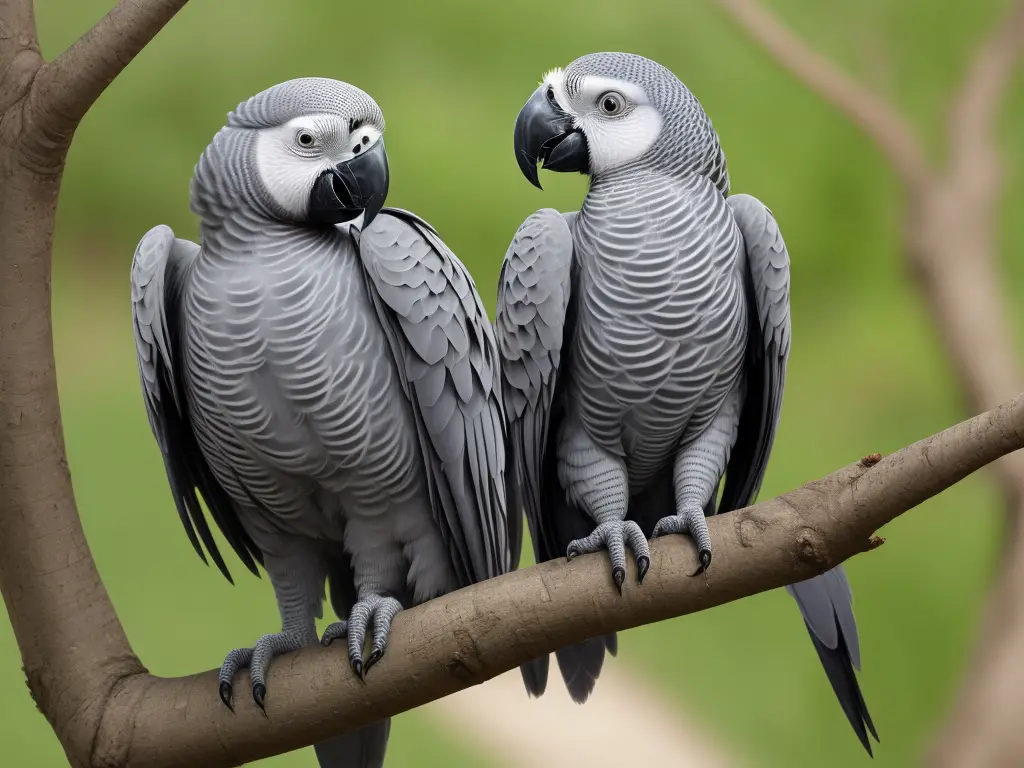
Socialization and Mental Stimulation for Your Baby African Grey Parrot
One of the most important aspects of caring for a baby African grey parrot is providing socialization and mental stimulation.
Time and Attention: The Importance of Bonding with Your Baby African Grey Parrot
Bonding with your baby African Grey Parrot is crucial for their emotional well-being and development. Spend quality time with them every day, talking softly, offering treats, and playing games.
Show them love and attention to build a strong and trusting bond.
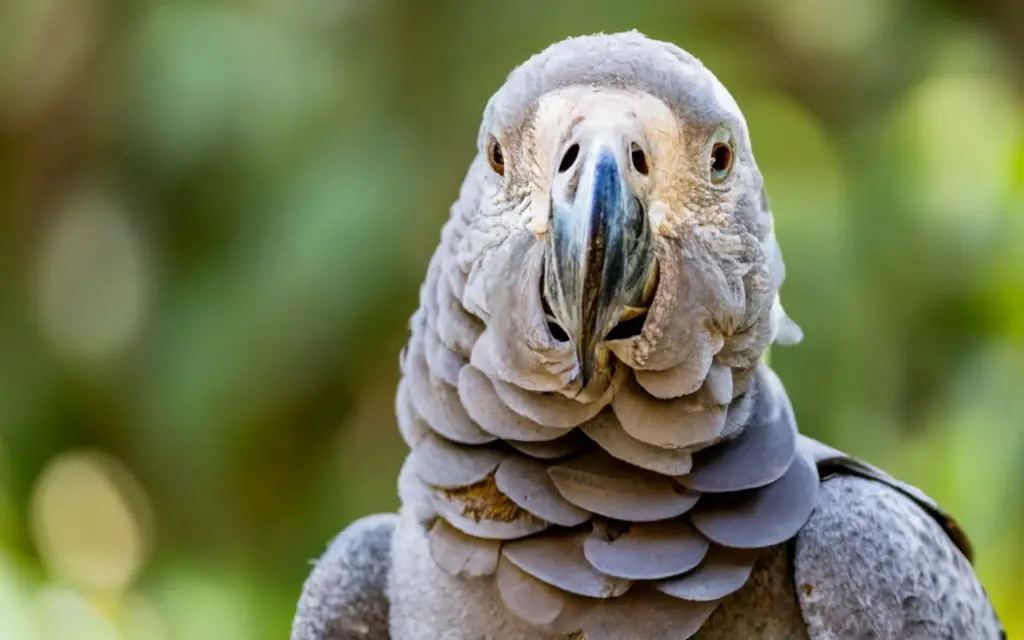
Providing Enrichment Activities for Your Baby African Grey Parrot
To provide enrichment activities for your baby African Grey Parrot, you can offer a variety of toys, puzzles, and foraging opportunities. Include different textures, sizes, and colors to stimulate their curiosity.
Rotating toys regularly and introducing new ones can keep them engaged and mentally stimulated.
Spending quality time with your parrot is also crucial, as they crave social interaction and mental stimulation.
Socializing Your Baby African Grey Parrot with Other Birds and Humans
Introduce your baby African grey parrot to other birds and humans gradually.
Start with supervised interactions in a controlled environment to ensure safety.
Encourage positive experiences and rewards to build trust and create a sense of comfort.
Patience and consistency are key in developing socialization skills for your parrot.
Training and Behavior Management for Your Baby African Grey Parrot
Train your baby African Grey parrot using positive reinforcement techniques to encourage desired behaviors.
Positive Reinforcement Techniques for Training Your Baby African Grey Parrot
Positive reinforcement is a crucial technique for training your baby African Grey parrot.
By using rewards such as treats or praise when your parrot exhibits desired behaviors, you can encourage them to repeat those behaviors.
Additionally, clicker training can be highly effective for teaching new tricks and commands.
Patience and consistency are key when using positive reinforcement to train your parrot.
Addressing and Preventing Behavioral Issues in Baby African Grey Parrots
Addressing and preventing behavioral issues in baby African Grey parrots is essential for their well-being.
Here are some tips:
- Positive reinforcement: Use rewards and praise to encourage good behavior, such as proper socialization and using their designated toys.
- Consistency: Establish a routine and stick to it. This helps your parrot feel secure and reduces the likelihood of developing unwanted behaviors.
- Environmental enrichment: Provide toys, puzzles, and activities to keep your parrot mentally stimulated. This prevents boredom and reduces the chances of behavioral issues arising from frustration.
- Socialization: Introduce your parrot to different people and birds from an early age. This helps them develop good social skills and reduces the risk of aggression or fear towards others.
- Rule out health issues: Many behavioral problems can stem from underlying health problems. Regularly visit a veterinarian to ensure your parrot’s well-being and address any medical issues.
Remember, each parrot is unique, so pay attention to their individual needs and behavior.
With patience, consistency, and a loving approach, you can address and prevent behavioral issues in your baby African Grey parrot.
Frequently Asked Questions About Baby African Grey Parrot Care
What is the lifespan of a baby African grey parrot?
The lifespan of a baby African grey parrot can vary, but on average, they can live up to 60 years or more with proper care.
These intelligent birds require a long-term commitment, so be prepared for a lifelong companionship when bringing one home.
How often should I feed my baby African grey parrot?
You should feed your baby African grey parrot small and frequent meals throughout the day. Aim for at least three meals, and make sure to provide a balanced diet that includes fresh fruits, vegetables, seeds, and pellets.
It’s important to monitor their appetite and adjust the feeding schedule accordingly.
Can I teach my baby African grey parrot to talk?
Yes, you can definitely teach your baby African grey parrot to talk! African grey parrots are known for their exceptional ability to mimic human speech. With patience, consistency, and positive reinforcement, you can train your parrot to develop an extensive vocabulary.
Just remember to start with simple words and phrases, and gradually increase the complexity as your parrot progresses.
How can I prevent my baby African grey parrot from biting?
To prevent your baby African grey parrot from biting, it’s important to understand why they bite in the first place. Biting can be a sign of fear, stress, or lack of socialization.
Here are a few tips to help prevent biting:
- Socialize your parrot: Expose your parrot to different people, environments, and situations from an early age. This will help them feel more comfortable and less likely to bite out of fear.
- Use positive reinforcement training: Reward good behavior with treats or praise, and avoid punishing or scolding your parrot. Positive reinforcement will encourage them to engage in desired behaviors without resorting to biting.
- Read their body language: Learn to recognize your parrot’s body language to understand when they may be feeling stressed or uncomfortable. Giving them space or providing a calm and secure environment can help prevent biting.
- Avoid rough play: Avoid rough play or behaviors that may provoke your parrot to bite. Instead, engage in gentle and interactive activities that promote trust and bonding.
- Provide plenty of mental stimulation: Boredom can lead to biting, so make sure your parrot has plenty of toys, puzzles, and activities to keep them mentally stimulated. This will help redirect their energy in a positive way.
Remember, each parrot is unique, so it’s important to be patient and consistent in your approach. With time, understanding, and positive reinforcement, you can help prevent your baby African grey parrot from biting.
What are the common health problems in baby African grey parrots and how can I prevent them?
Common health problems in baby African grey parrots include respiratory infections, nutritional deficiencies, and feather plucking.
To prevent these issues, provide a clean and well-ventilated environment, a balanced diet with essential nutrients, and regular veterinary check-ups.
Final Verdict
Caring for a baby African grey parrot requires understanding their needs, providing a safe and comfortable environment, and establishing a balanced diet and feeding schedule.
Regular hygiene and grooming practices, along with socialization and mental stimulation, are crucial for their well-being.
Positive reinforcement techniques can be used for training and addressing behavioral issues.
By following these guidelines and seeking regular veterinary care, you can ensure a healthy and happy life for your baby African grey parrot.

